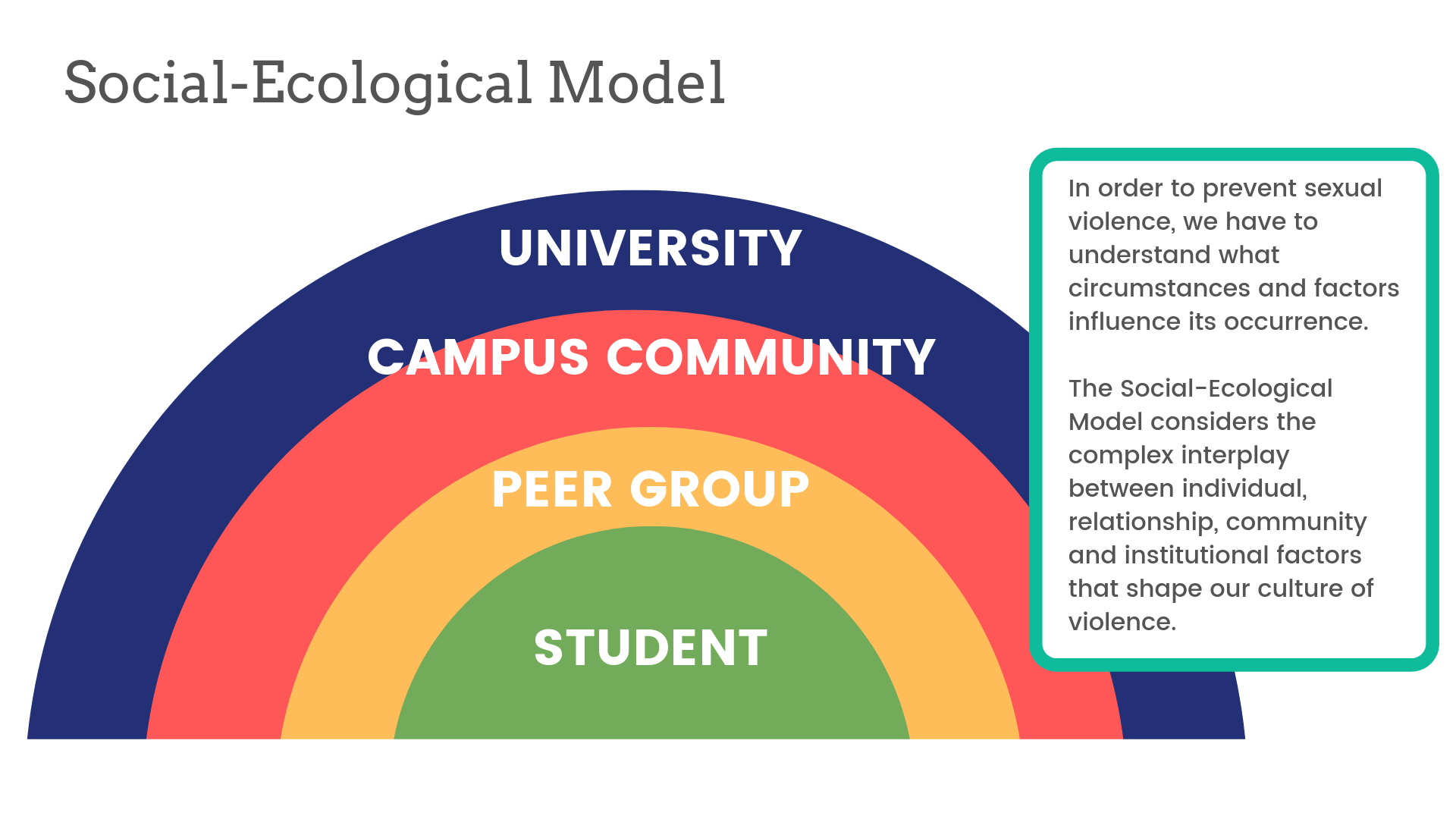CARE's Prevention strategy aims to educate all populations within the campus community (students, staff, and faculty) on the critical roles that they each play in preventing violence and creating culture change. To prevent sexual violence, we have to understand what circumstances and factors influence its occurrence. Like the CDC, CARE utilizes a socio-ecological model to understand the factors that influence interpersonal violence as it offers a framework for understanding the complex interplay of individual, relationship, social, political, cultural, and environmental factors that influence sexual violence (Dahlberg and Krug 2002).
To learn more about mandatory and ongoing prevention education for the campus community, please visit Campus-Wide Prevention Education. To learn more about CARE's free and confidential advocacy services for students, staff and faculty, please visit our Survivor Services page.
